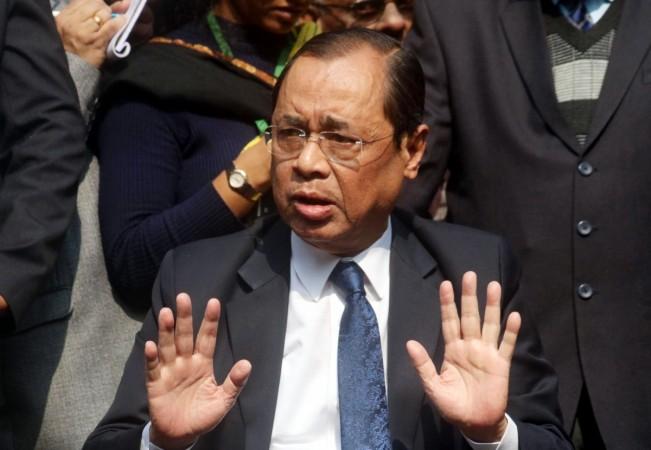Former Chief Justice of India and now a Rajya Sabha MP Ranjan Gogoi on Wednesday batted for the collegium system for the appointment of judges and claimed that he never faced any interference from the government in judicial appointments. Speaking at a webinar organized by Confederation of Alumni for National Law Universities on the topic 'Ensuring an independent judiciary under our Constitution', Gogoi said that during his tenure as the Chief Justice of India, 14 names were recommended for appointment to the Supreme Court and they were timely accepted by the government.

"Fourteen names were recommended for appointment to SC during my tenure. These were accepted and appointments made in time. There was never any difficulty. All recommendations with 24-25 CJs of HCs also were processed in time. No executive interference..," former CJI Gogoi said.
However, there were several instances during his tenure when it appeared that there was an apparent tug-of-war between the government and the judiciary under the Narendra Modi administration. One such case was the appointment of Justice Kuttiyil Mathew Joseph's appointment to the Supreme Court.
Justice Joseph, who stood up to the Modi government with his 2016 Uttarakhand judgment to end Centre's rule in the state, took oath as a Supreme Court judge nearly six months after he was recommended by the Supreme Court collegium. The Law Ministry, in fact, returned his file to the collegium and asked them to reconsider their recommendation.
On post-retirement jobs
Recently, Gogoi's nomination to the Rajya Sabha by the Centre raised many eyebrows and even his former colleagues, including those with whom he had addressed that famous press conference against then-CJI Dipak Misra, also questioned his decision to accept the Upper House birth.

When asked about the post-retirement jobs, Gogoi said that there are judges who take to arbitrations after demitting office while some judges talk about judicial independence and freedom of speech. "You talk about post-retirement engagements as compromising judicial independence. What about those other two categories," he asked.
On complaints against judges
When asked about the complaints against judges, Ranjan Gogoi, who himself faced accusations of sexual harassment by a Supreme Court employee, said that there are numerous complaints against judges but not all can be taken up. He said that in such cases in house inquiry is conducted, which he said is available online. "Please read it," Gogoi said.
He said that the in house inquiry procedure is common to all judges in the higher judiciary. It does not contemplate the participation of lawyers, witnesses, or participation of outsiders.
"If the complaint is to be dismissed, the report is not to be made public. There is good reason, it may embarrass the judge. It the complaint is found to be of substance, the judge is asked to step down. If he does not step down, he is asked to stay away from judicial work and the matter is referred to the President, Prime Minister for impeachment. Then the Judges Inquiry Act comes in," Bar & Bench quoted him as saying.








